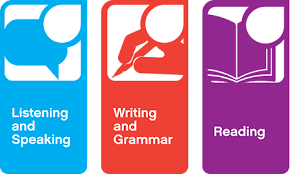Let’s face it. People making the transition from academe to the business world usually don’t realize soon enough the need to change from academic to business prose. Many college graduates entering the workforce think that the difference in content, style, and voice is simply cosmetic, one that can eventually be smoothened out by just fully immersing themselves in their jobs. But the unfortunate thing is that most of them never outgrow their academic English. A great many, in fact, do not learn business English at all in their entire careers. Without a clear understanding of the differences between the two writing disciplines, they brew their own heady mix of academic-oriented business prose that befuddles instead of clarifies. Some remain clueless even up to their retirement about what they are doing with their English prose, leaving in their wake so many forms of confused, strange, and often bewildering business communication.


Perhaps it will help those who have not yet made the transition from academic to business writing if we attempted to formally differentiate the two. As most of us had learned with blood, sweat, and tears in college, academic writing is essentially building up an argument about a subject that often does not even matter personally to us, formally expressing a largely arbitrary point of view about it, and marshalling evidence from a wide range of academic sources to support that point of view. As one academic had put it, academic writing is writing done by scholars for other scholars. It showcases the quality of mind of its writer rather than the usefulness of his ideas. This is as it should be, for academic writing seeks not to foster unity of mind and purpose but precisely to foment dissent and intellectual ferment. Its end as well as its means is, in fact, knowledge itself.
Business writing, in contrast, is a much less ambitious but much more pragmatic enterprise in prose. Selfish not from the writer’s personal point of view but from that of the company or institution he or she represents, it is meant to promote unanimity in thinking and unity in action. As such, it shuns and discourages the natural propensity of individuals to seek or engage in arguments. On the contrary, it is primarily designed to minimize if not completely eliminate them so that the organization can move as one towards one set goal: to satisfy the demands, wants, and desires of its customers or constituencies. In sum, business writing is the language of people who have already resolved most of their individual differences in favor of the organization, and who will only be too happy to smoothen out the rest of those differences so they can be as single-minded as possible in pursuing an objective.
Another major difference between academic and business prose is the mental state required of the writer when in the act of doing it. Academic writing is the overt act of an individual in the act of thinking; he wants the world to know precisely what his agenda is and what is going on inside his head in pursuing that agenda. He does not hide the fact that he wants to convince a jury of academic superiors and peers that he is capable of the art of thinking and intellectual judgment. The point of view is therefore unabashedly that of the first person “I,” even if the writer avails himself of all the tricks in grammar to hide that fact. This is the reason why it is common for entry-level marketing staff in a company to write like this: “If it is our avowed goal to be supremely competitive in the AB market sector and to also penetrate the CD sector in the medium term, I believe that Marketing should make a concerted effort to give the appropriate customer-oriented attributes to both the product itself as well as to its packaging.” That is not the language of business at all. Business writing is strongly groupthink, and a company is a place where one has to ruthlessly sublimate one’s personal point of view for the larger organizational good. Given the same writing task, therefore, the experienced business writer will be much more straightforward: “The product must have AB and CD product and packaging attributes to penetrate both market segments in the medium term.”
All of these differences account not only for the great divide between academic and business writing but also for the big difference in their lengths. Since the aim of academic writing is primarily to argue and to prove a point, it not only tolerates but actually encourages overly long sentences, as in this hypothetical academic statement: “In consideration of the fact that the works of the Nobel-Prize-winning novelist Gabriel Garcia Marquez reach us only in the English translations of their Spanish-language originals, notably by Gregory Rabassa who did the masterful translation of Marquez’s
One Hundred Years of Solitude, I find it not inconceivable at all that the concerns of some Pan-American scholars over the fidelity of these translations to the Hispanic cultural nuances of their originals may not be altogether unwarranted particularly in the context of unfortunate experiences in the literary genre with respect to Pan-American writers of comparable stature to Marquez, including Pablo Neruda and Pablo Coelho.”
The business-oriented writer, on the other hand, conscious of the perils of longwinded writing, would routinely chop up the 102-word semantic giant above into bite-size sentences: “Gabriel Garcia Marquez, the Nobel-Prize-winning novelist, wrote in Spanish. His novels thus reach us only in their English translations, notably by Gregory Rabassa who did the masterful translation of Marquez’s
One Hundred Years of Solitude. For this reason, some Pan-American scholars are concerned that these translations may not be thoroughly faithful to the Hispanic cultural nuances of the original. These concerns may have some basis in fact. There have been unfortunate experiences in the genre with respect to the translations of such Pan-American writers Pablo Neruda and Pablo Coelho, whose statures are comparable to that of Marquez.”
There is a whole world of difference between the two passages. The shift from academic to business prose is therefore often painfully difficult, but it will be worth the time and effort for those who dream of truly making their mark in business.
This essay first appeared in the weekly column “English Plain and Simple” by Jose A. Carillo in The Manila Times
and subsequently appeared as Chapter 8 in the Afterthoughts section of his book English Plain and Simple: No-Nonsense Ways to Learn Today’s Global Language
, © 2004 by Jose A. Carillo, © 2008 by the Manila Times Publishing Corp. All rights reserved.